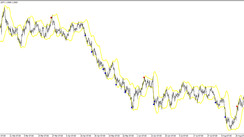Mastering Day Trading: Essential Strategies for Success
Day trading, the art of buying and selling financial instruments within a single day, offers immense potential for profit if approached with skill and strategy. In this comprehensive guide, we will explore vital day trading strategies for beginners that can help maximize your chances of success in the fast-paced world of trading.
Section 1: Knowledge Is Power
Gain an Edge with Up-to-Date Market Information
To excel in day trading, it is crucial to stay informed about market trends, stock market news, and events that impact stock prices. Stay updated with the latest developments, such as interest rate plans from the Federal Reserve System, leading indicator announcements, and economic news. Build a solid knowledge base about the companies and stocks you plan to trade. Regularly scan reliable online news outlets and create a watchlist of your preferred stocks.
Keeping yourself informed about the selected companies, their stocks, and general markets is essential. By doing your homework, you can make well-informed trading decisions and stay ahead of market trends.
Section 2: Allocate Your Trading Capital
Manage Risk: Determine Your Investment Amount
Risk management is paramount in day trading. Assess your risk tolerance and allocate a specific amount of capital for each trade. Successful day traders often limit their risk to 1% to 2% of their trading accounts per trade. This approach ensures that even if you encounter losses, they will be within an acceptable range and won't severely impact your overall portfolio.
Before entering any trade, evaluate how much capital you are willing to risk. By setting clear limits, you can protect your trading account and prevent significant losses.
Section 3: Time Is of the Essence
Devote Ample Time to Day Trading
Day trading requires significant time and focus. Ensure you have sufficient availability to dedicate to this endeavor. Tracking markets and seizing opportunities demands constant attention throughout the trading hours. Be prepared to act swiftly and make quick decisions when favorable circumstances arise.
Day traders need to be actively involved in monitoring the markets. Whether it's during pre-market hours, the opening bell, or intraday fluctuations, being present and engaged is crucial to capitalize on potential profits. Allocate enough time in your daily schedule to immerse yourself in the trading process.
Section 4: Start Small and Expand
Beginner's Tip: Begin with a Few Select Stocks
As a beginner, it is advisable to focus on a limited number of stocks, ideally one to two, during a session. This approach makes it easier to manage and identify opportunities. Additionally, take advantage of the option to trade fractional shares, which allows you to invest smaller dollar amounts. For instance, even if a share of Amazon is valued at $3,400, you can now purchase a fractional share for as low as $25, representing less than 1% of a full share.
Starting with a small number of stocks enables you to closely monitor their price movements and market dynamics. It's an effective way to gain experience and build confidence before expanding your trading portfolio.
Section 5: Mitigate Risk
Steer Clear of Penny Stocks
Although the allure of low-priced stocks may be tempting, it is best to avoid penny stocks. These stocks often lack liquidity and offer limited chances of substantial gains. Many stocks trading under $5 per share become delisted from major stock exchanges, making them exclusively tradable over-the-counter (OTC). Unless you have thoroughly researched and identified a genuine opportunity, it is wise to refrain from investing in penny stocks.
Penny stocks can be highly volatile and susceptible to manipulation. Their low prices may entice beginner traders with the hope of significant returns, but they come with a higher level of risk. It is crucial to focus on quality stocks with adequate liquidity and a solid track record to enhance the probability of success in day trading.
Section 6: Timing Is Key
Master Market Timing
The timing of your trades can greatly impact your success. In the morning, as the markets open, many orders are executed, leading to increased price volatility. This volatility can present both opportunities and risks. Experienced day traders may be able to identify patterns and execute trades during these initial moments. However, beginners may benefit from observing the market without making any moves for the first 15 to 20 minutes. This allows them to gauge the overall market sentiment and identify any emerging trends.
The middle hours of the trading day often experience lower volatility compared to the opening and closing hours. During this period, the market tends to stabilize, and it may be a suitable time for managing existing positions or planning future trades. As the closing bell approaches, the market can experience heightened activity as traders aim to close their positions before the end of the day. While this period may present enticing opportunities, it is generally advisable for beginners to exercise caution and refrain from rushing into trades without thorough analysis.
By understanding the different phases of the trading day and being mindful of market timing, day traders can make more informed decisions and improve their chances of profitability.
Section 7: Cut Losses With Precision
Utilize Limit Orders for Risk Management
When entering and exiting trades, it is essential to determine the type of orders that align with your risk management strategy. Market orders are executed at the best available price at the time of execution, without any price guarantee. They are useful when speed is of the essence and you want to quickly enter or exit a position.
On the other hand, limit orders allow you to specify the price at which you want your order to be executed. This provides greater control over your trades and helps limit potential losses. By setting a predefined price, you ensure that your order is executed only if the market reaches your desired level. This can be particularly useful for cutting losses when a trade moves against your expectations.
It's important to note that while limit orders offer price guarantees, there is no guarantee of execution. If the market doesn't reach your specified price, your order may not be filled. However, the use of limit orders can help you maintain discipline and avoid unnecessary losses.
Section 8: Be Realistic About Profits
Set Realistic Expectations and Define Your Goals
Day trading is not a guaranteed path to instant wealth. It requires patience, discipline, and a realistic approach to profits. While it's natural to strive for consistent gains, it's important to understand that not every trade will be a winner.
Successful day traders often focus on achieving a favorable risk-to-reward ratio. This means that even if they have a win rate of 50% to 60%, their profitable trades outweigh the losses incurred from unsuccessful trades. It's crucial to limit the financial risk on each trade to a specific percentage of your trading account. Additionally, clearly define your entry and exit strategies to ensure a systematic approach to trading.
By setting realistic expectations, managing risk effectively, and having a well-defined trading plan, you can stay grounded and avoid emotional decision-making. Remember that consistent profitability in day trading comes from a combination of disciplined execution, risk management, and continuous learning.
Section 9: Stay Cool Under Pressure
Master Your Emotions
The stock market can be a rollercoaster ride, testing your nerves and emotions. As a day trader, it is essential to learn how to keep emotions such as greed, fear, and hope in check. Emotional decision-making can lead to impulsive trades and poor judgment, which can result in significant losses.
Developing emotional discipline requires practice and self-awareness. Recognize the impact of emotions on your decision-making process and implement strategies to stay calm and rational. This may include taking regular breaks, practicing mindfulness techniques, or journaling your thoughts and feelings after each trading session.
Maintaining a clear and focused mindset will help you make objective decisions based on your trading plan and analysis, rather than being swayed by impulsive emotions.
Section 10: Stick to Your Plan
The Power of Consistency
Successful day traders operate with a plan. They have a well-defined trading strategy, along with the discipline to stick to it. While the market may present tempting opportunities, it's crucial to follow your established trading plan rather than chase quick profits.
Your trading plan should include specific criteria for entering and exiting trades, risk management guidelines, and a clear assessment of market conditions. It should align with your trading style and risk tolerance. Regularly review and refine your plan based on your experiences and evolving market dynamics.
Remember the mantra of day traders: "Plan your trade and trade your plan." By maintaining consistency and discipline, you can avoid impulsive decisions and increase your chances of long-term success in day trading.
Continuous Learning and Adaptation
The Journey of Growth
Day trading is a journey of continuous learning and adaptation. The markets are ever-changing, and staying ahead requires a commitment to self-improvement and acquiring new skills.
Invest in your education by reading books, attending seminars or webinars, and following reputable trading blogs and forums. Surround yourself with experienced traders who can provide guidance and mentorship. Learn from both your successful trades and your losses, analyzing them to identify patterns and areas for improvement.
Stay updated with the latest market trends, technological advancements, and trading strategies. Embrace new tools and technologies that can enhance your analysis and execution. Adaptation is key to thriving in the dynamic world of day trading.
Practice Makes Perfect
Simulated Trading and Real-Time Experience
Before committing substantial capital, it's advisable to practice day trading in a simulated environment. Many brokerage platforms offer paper trading accounts that allow you to execute trades with virtual money. This provides an opportunity to test your strategies, refine your skills, and gain confidence without risking real funds.
As you gain experience and proficiency, gradually transition to real-time trading with smaller position sizes. Treat your initial trades as a learning experience and gradually increase your position sizes as you become more comfortable and consistently profitable.
Keep a trading journal to track your trades, record your observations, and reflect on your performance. This will help you identify patterns, strengths, and weaknesses. Continuously analyze your trading journal to refine your strategies and make necessary adjustments.
Remember, practice and experience are invaluable in day trading. Embrace the learning process, be patient with yourself, and stay committed to continuous improvement.
Risk Management and Capital Preservation
Protecting Your Trading Capital
One of the fundamental principles of successful day trading is effective risk management. Protecting your trading capital should be a top priority. Here are a few key considerations:
- Set Stop-Loss Orders: Determine the maximum loss you are willing to tolerate for each trade and set stop-loss orders accordingly. This ensures that you exit a trade if it moves against you beyond a predetermined point, preventing significant losses.
- Use Position Sizing: Calculate the appropriate position size based on your risk tolerance and the distance between your entry and stop-loss levels. Position sizing helps control the amount of capital allocated to each trade relative to the risk.
- Diversify Your Trades: Avoid overexposure to a single stock or sector. Diversify your trades by selecting stocks from different industries or sectors to spread out the risk.
- Avoid Revenge Trading: Don't let emotions drive your trading decisions. If you experience a string of losses, take a step back and reassess your strategy instead of impulsively trying to recover losses through revenge trading.
By implementing sound risk management practices, you can protect your trading capital, reduce the impact of losses, and create a sustainable trading approach.
Seek Knowledge and Mentorship
Learning from Experienced Traders
Learning from experienced traders can significantly accelerate your progress as a day trader. Seek out mentors who have a proven track record and are willing to share their knowledge and insights. Join trading communities, attend webinars, or participate in trading courses that offer mentorship programs.
Engage in discussions with fellow traders to exchange ideas and perspectives. Gain insights into different trading styles, strategies, and market analysis techniques. However, remember to filter information and apply critical thinking to determine what aligns best with your trading approach.
Continuously expand your knowledge by reading books, following reputable financial publications, and staying informed about industry developments. The more you learn, the better equipped you will be to make informed trading decisions.
Patience and Perseverance
Building Long-Term Success
Day trading is not a get-rich-quick scheme. It requires patience, perseverance, and a commitment to continuous improvement. Building long-term success as a day trader takes time and effort.
Stay focused on your goals and remain disciplined in following your trading plan. Embrace the inevitable ups and downs of the market without getting discouraged. Learn from both winning and losing trades, and use setbacks as opportunities for growth.
Developing consistency in your trading results will take time. Avoid chasing after every trade and focus on high-quality setups that align with your strategy. Remember, it's the cumulative results of your trades that matter, not individual outcomes.
Keep refining your skills, adapting to market conditions, and staying updated with the latest industry trends. With patience, perseverance, and a commitment to continuous learning, you can improve your abilities as a day trader and increase your chances of long-term success.
Psychological Well-being
Maintaining Balance and Emotional Well-being
Day trading can be mentally and emotionally demanding. It's essential to prioritize your psychological well-being to ensure sound decision-making and overall happiness.
Establish a routine that includes regular breaks, exercise, and relaxation activities. Physical exercise can help reduce stress and improve cognitive function, while relaxation techniques like meditation or deep breathing exercises can help calm the mind and maintain focus.
Maintain a healthy work-life balance. Spending time with family and friends, pursuing hobbies, and engaging in activities unrelated to trading can provide a much-needed respite from the intensity of the market.
Seek support from like-minded individuals, whether through online communities, trading groups, or mentorship programs. Sharing experiences, challenges, and successes with others who understand the intricacies of day trading can provide valuable support and encouragement.
Finally, be kind to yourself. Understand that not every trade will be profitable, and losses are part of the learning process. Treat yourself with compassion and celebrate your achievements, regardless of their magnitude.
Adapting to Market Changes
Staying Ahead in an Ever-Evolving Market
The financial markets are dynamic and constantly evolving. To stay ahead as a day trader, it's crucial to adapt to market changes and embrace technological advancements.
Stay updated with industry news, economic indicators, and geopolitical events that can impact market sentiment. Be aware of shifts in market trends, the introduction of new financial instruments, and changes in regulations that may affect your trading strategy.
Leverage technology to your advantage. Utilize advanced charting tools, real-time data feeds, and trading software that provide insights and facilitate efficient execution. Stay informed about new trading platforms and technological innovations that can enhance your trading experience.
Continuously evaluate and refine your trading strategies. What may have worked in the past may not be effective in the future. Be open to exploring new approaches, adapting your methods, and incorporating new techniques as you gain experience and market knowledge.
Compliance and Legal Considerations
Understanding Rules and Regulations
Day trading involves financial markets and transactions, which are subject to various rules and regulations. It's essential to understand and comply with the legal framework to protect yourself and ensure ethical trading practices.
Familiarize yourself with the rules and regulations imposed by regulatory authorities, such as the Securities and Exchange Commission (SEC) or the Financial Industry Regulatory Authority (FINRA). Stay informed about restrictions, reporting requirements, and potential penalties associated with insider trading, market manipulation, or other prohibited activities.
Choose a reputable brokerage firm that adheres to regulatory standards and provides transparency in its operations. Ensure that your brokerage account offers appropriate trading permissions and complies with the necessary regulatory requirements.
Maintain accurate records of your trades, including transaction details, account statements, and tax-related information. Consult with a qualified tax professional to understand your obligations and responsibilities regarding tax reporting and payments related to your trading activities.
Be mindful of potential conflicts of interest. Avoid engaging in trading activities that may create conflicts between your personal interests and those of your clients or employer, if applicable. Adhere to professional standards of conduct and ethical behavior.
By understanding and complying with the legal and regulatory framework, you can protect your interests, maintain your reputation, and ensure a smooth trading experience.
Review and Adapt
Continuous Evaluation and Improvement
Day trading is a dynamic field that requires continuous evaluation of your strategies, techniques, and performance. Regularly review your trading activities and assess areas for improvement.
Analyze your trades to identify patterns and trends. Assess the effectiveness of your strategies, risk management techniques, and decision-making process. Consider keeping a trading journal to track your trades, emotions, and reflections on each trade. This journal can provide valuable insights into your strengths, weaknesses, and areas that require improvement.
Stay updated with the latest market developments, trading methodologies, and technological advancements. Attend webinars, workshops, and conferences to enhance your knowledge and skills. Engage with fellow traders to exchange ideas and perspectives.
Seek feedback from experienced traders, mentors, or trading communities. Their insights and constructive criticism can help you gain new perspectives and identify blind spots in your trading approach.
Be willing to adapt and make necessary adjustments based on your evaluation. Implement changes gradually and assess their impact on your trading results. Remember, successful day traders are those who are flexible, open-minded, and willing to evolve.
Conclusion
Embarking on the Day Trading Journey
Day trading offers exciting opportunities for those willing to put in the effort and dedication. With a solid understanding of essential strategies, risk management techniques, and continuous learning, you can enhance your chances of success in this fast-paced arena.
Remember that day trading is a skill that requires time, practice, and perseverance to master. Focus on building a strong foundation of knowledge, developing a robust trading plan, and managing risk effectively. Embrace the challenges, learn from your experiences, and adapt to market changes.
Always prioritize your psychological well-being, maintain ethical practices, and comply with regulatory requirements. Surround yourself with a supportive trading community and seek guidance from experienced traders to accelerate your progress.
As you embark on your day trading journey, stay disciplined, patient, and committed to continuous improvement. With dedication and the right mindset, you can navigate the complexities of day trading and work towards achieving your financial goals.





